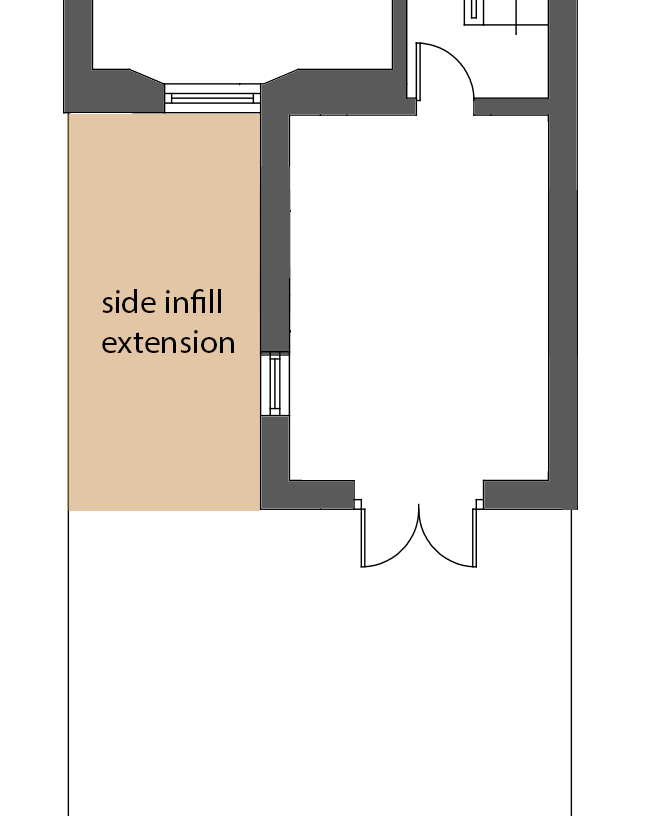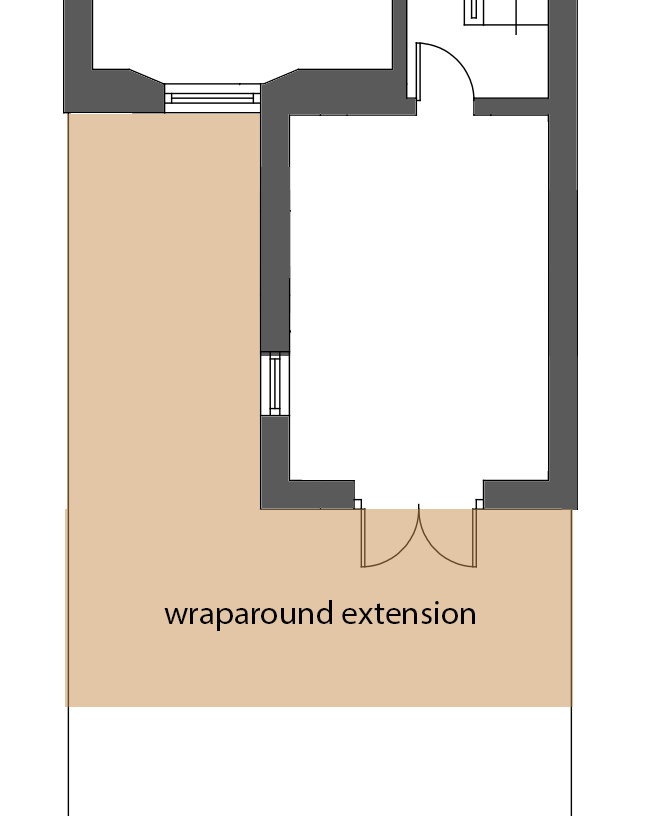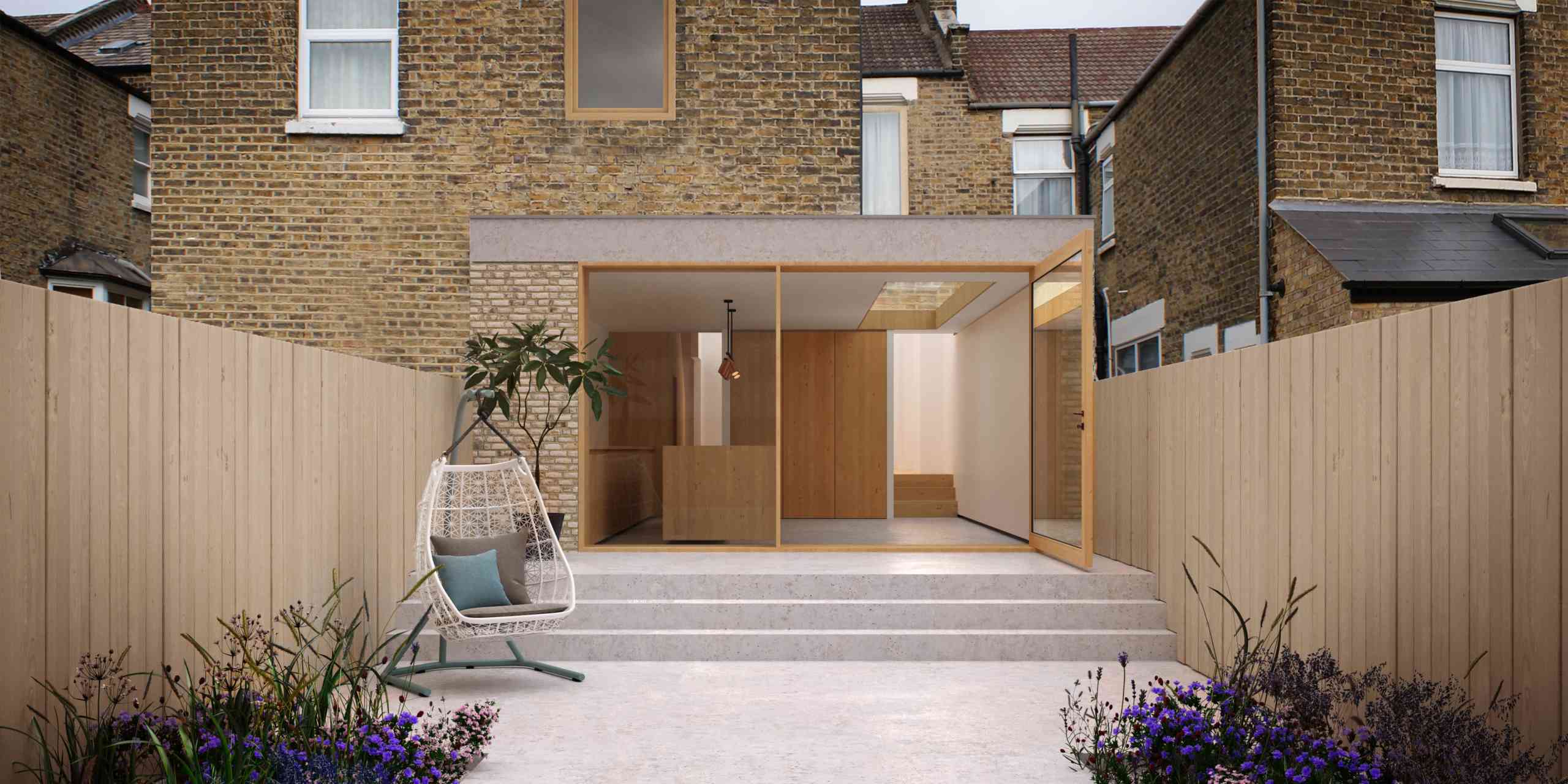A wraparound extension does not usually benefit from permitted development rights. This is because the extension inherently includes a side extension, which is limited measuring only 50% of the width of the house under permitted development rules.
What is a wraparound extension?
A wraparound extension combines side extension and a rear extension to make an L-shape.
Wraparound extension above by Tyrone, architect from Lambeth, London. Click here to see more and shortlist them for your home project.
What’s the difference between an infill extension and a wraparound extension?
An infill extension usually means that you are filling in a gap in the plan. For example, a side-infill extension is a very common project for period terraced homes. Many Victorian terraces have an ‘outrigger’, leaving a narrow strip of land to the side. Claiming this space back internally can transform a kitchen or living space, without affecting the enjoyment of your garden.
An infill extension can be part of the wraparound extension – see the illustrations below.


Finding your wraparound extension architect
As planning permission will usually be required for a wraparound extension, the most critical thing is that you find the right architect to guide you through these legal requirements alongside the design decision-making process.
Here at Design for Me, we can match you with the perfect architect for your wraparound extension. Choose up to three interested design professionals for an initial consultation. And it’s all completely free!
- Quickly see who’s interested in your job.
- Create a shortlist.
- Invite up to three for a no-obligation consultation.
Some other articles you may find useful before starting your wraparound extension:
How much does a wraparound extension cost?
A simple guide to calculating your wraparound extension cost.
Get some design inspiration for your side return extension!
Should I pay for planning pre-application advice?
Emily Design for Me

